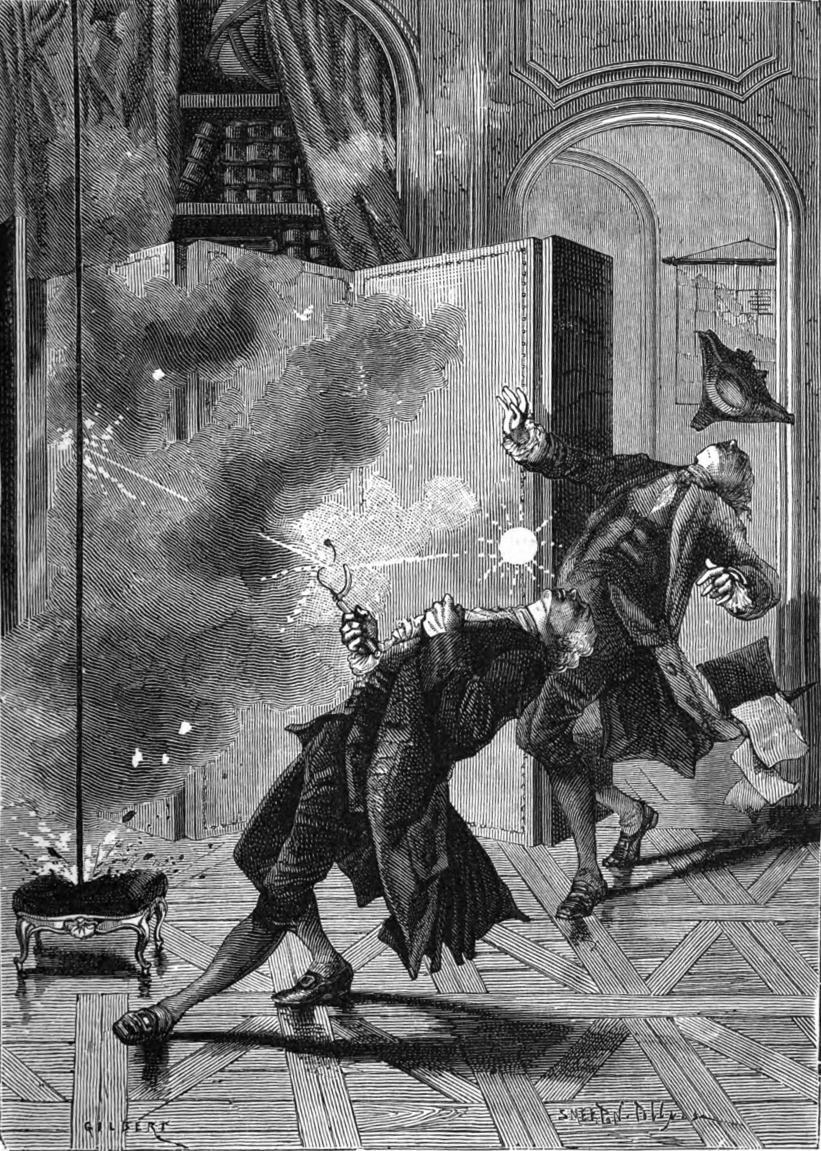Transcranial magnetic stimulation is like striking a
showroom dummy on the head with a clock-winding key.
showroom dummy on the head with a clock-winding key.

Peer and Kendl have a theory that "reports on luminous perceptions during thunderstorms" -- i.e.
roughly 1% of (otherwise unharmed) close lightning experiencers are likely to perceive transcranially induced above-threshold cortical stimuli.There are various things wrong with this theory. In particular, to get phosphenes you need localised stimulation
 (which the
(which the Conversely, a nearby lightning strike is not so specific. It will stimulate motor cortex at the same time, so any ball-lightning-related visions will be accompanied by falling on the floor and twitching (see Fig. 2).
The other problem with TMS-induced phosphenes as an explanation for anything is that one needs to learn to see them -- for they are not like anything in the normal visual environment and do not fit into any familiar categories. People simply do not see them on first exposure, any more than they see Haidinger's Brush. Kammer et al. (2005) reported that 80% of their subjects learned to notice phosphenes in the first training session while "the remaining subjects have required up to four training sessions".
Once they've seen the
Readers of Flann O'Brien know where I am heading:
In colour they were not white or black and certainly bore no intermediate colour; they were far from dark and anything but bright. But strange to say it was not their unprecedented hue that took most of my attention. [...] I can only say that these objects, not one of which resembled the other, were of no known dimensions. They were not square or rectangular or circular or simply irregularly shaped nor could it be said that their endless variety was due to dimensional dissimilarities. Simply their appearance, if even that word is not inadmissable, was not understood by the eye and was in any event indescribable.Also, more evidence for the Nominal Determinism theory of science career choice:
 UPDATED: Bonus Painter of Orbs. (or possibly, of TMS phosphenes).
UPDATED: Bonus Painter of Orbs. (or possibly, of TMS phosphenes).Richard Oelze.


10 comments:
Phosphenes, who knew God was but a jab in the eye away?
...that one needs to learn to see them --
One needs to learn to take their picture while getting them to pose naturally.
~
All in all, a somewhat confusing post. A listing of observations, suppositions and weather-related anecdotes to arrive at a description that anyone who ever did 2000+ micrograms of purple microdot LSD knows all about.
I mean, if me and everyone I know already knew all this stuff in 1973, what is contained in this article that is newsworthy.
Yay. Shapes that cannot exist in threespace and colors that do not exist in nature. You left out the part about what happens when you have sex...
And here I was blaming the Datura.
You do your readers a disservice and neglect to warn them of serious dangers by not accurately describing what has happened in that second picture. It is clear that the two gents let the beam reading get too high, did not keep the pilot mark steady enough and utterly neglected the charcoal feedings. Of course there was bound to be a serious explosion. Fools.
I shouldn't criticize though. I am not always so careful myself. Such as when I did my own orb experiment and it ended in total fail.
Such as when I did my own orb experiment and it ended in total fail.
OMFSM that man has been eaten by a giant breast.
It is clear that the two gents let the beam reading get too high
It was a light fall at seven fifteen, with lumps, but there was no looseness on the shuttle so they believed themselves to be safe.
They thought they would be covered by the interfactororboroid, rookie mistake.
AHahah Don't eff with orbs, you don't KNOW how they work!
~
Orb like dis http://www.youtube.com/watch?v=7Ozl-ud1zTo&videos=NbPSgwzhfvQ&playnext=2
Post a Comment